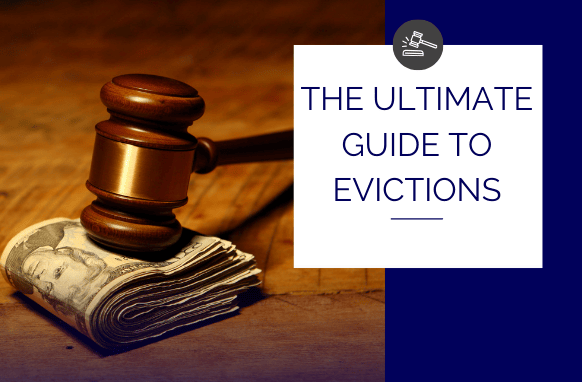When investing in real estate, having an exit strategy is just as important as acquiring properties. Smart investors keep a close watch on market trends and their portfolios, ensuring they make informed decisions when the time comes to sell. However, selling a rental property with tenants in place presents unique challenges. Landlords must navigate tenant rights, legal considerations, and the logistics of selling an occupied home.

To ensure a smooth process, seeking advice from an experienced real estate professional is essential. You’ll also want to educate yourself on your tenants’ rights and legal obligations before listing the property.
If you’re considering selling a rental home with tenants in Virginia, this guide will walk you through the key steps and best practices. Plus, be sure to download our Free Landlord Guide to get expert insights on managing your rental property sale!
Understanding Tenants’ Rights
When selling a rental property, respecting your tenants’ rights isn’t just ethical—it’s the law. Laws at the local, state, and federal levels dictate how and when a landlord can sell an occupied property. Failing to comply with these regulations could lead to legal trouble and resistance from tenants.
To avoid conflicts, take time to understand:
- Lease Agreements: If your tenants are under a fixed-term lease, they have the right to stay until the lease expires unless otherwise stated. Month-to-month tenants generally require proper notice before the sale.
- Right to Quiet Enjoyment: Tenants are entitled to privacy and should not be disrupted unnecessarily during the sales process.
- Notice Requirements: Most jurisdictions require landlords to provide written notice before entering the property for showings.
Working with your tenants rather than against them can make the process much smoother. Cooperation can lead to a cleaner, better-maintained property, increasing its appeal to potential buyers.
Want more strategies to boost your rental income? Our comprehensive Landlord Guide covers everything you need to know. Download Now!
How to Notify Tenants About the Sale
Nobody likes unexpected surprises, especially when it comes to their home. That’s why clear and timely communication with your tenants is crucial when selling a rental property.
Best Practices for Notifying Tenants:
- Provide Written Notice: A written letter or email ensures clarity and creates a record of communication.
- Be Transparent and Respectful: Let tenants know your intentions and reassure them that their rights will be upheld.
- Offer Incentives for Cooperation: In some cases, tenants may be willing to assist with showings or keep the home in great condition in exchange for a small rent discount or another benefit.
Get Your Free Landlord Guide!
Download our comprehensive guide,
Virginia Landlord’s Guide to Evicting Tenants and gain:
✅ Step-by-step instructions
✅ Links to essential forms and resources
✅ Pro tips for a smooth property sale
✅ Clear timelines and next steps

Lease Renewals and Timing Your Sale
One of the biggest factors affecting the sale of a rental property is the tenant’s lease. If the lease is nearing expiration, waiting until it ends can simplify the process. A vacant property is often easier to sell and more attractive to potential buyers.
Options for Selling With an Active Lease:
- Sell to an Investor: Many real estate investors prefer properties with tenants already in place, as it provides immediate rental income.
- Negotiate an Early Move-Out: If your tenant is willing to leave early, you can offer financial incentives, such as covering moving expenses.
- Wait for Lease Expiration: If time is on your side, waiting until the lease ends allows for a cleaner sale.
Ready to learn how to structure lease option agreements to your advantage? Don’t miss out on our FREE Landlord Guide! Download the Guide!
Dealing With Difficult Tenants
Not all tenants will be cooperative during the sales process. Some may refuse showings, neglect property upkeep, or even cause damage. If you’re dealing with a difficult tenant, you have a few options:
Strategies for Handling Problem Tenants:
- Cash for Keys: Offering tenants a lump sum payment in exchange for moving out early can be an effective way to regain control of your property.
- Legal Eviction: If a tenant is violating lease terms, eviction may be necessary, though it should always be a last resort.
- Sell As-Is to an Investor: Some investors specialize in purchasing properties with problematic tenants, allowing you to sell quickly without eviction.
Want to ensure you’re maximizing rental returns? Our Landlord Guide offers expert tips and actionable insights. Download for Free!
Working With a Direct Buyer
If selling a house with tenants in Virginia sounds overwhelming, there’s a hassle-free alternative—selling directly to a real estate investor.
Benefits of Selling to a Direct Buyer:
✔ Sell your property as-is, without making costly repairs.
✔ No need to evict tenants before the sale.
✔ Avoid listing fees, agent commissions, and closing costs.
✔ Enjoy a fast and straightforward closing process.
At Virginia Cash Home Buyer, we specialize in purchasing tenant-occupied properties in Virginia. Whether you have cooperative renters or challenging tenants, we provide a simple and efficient solution. Contact us today for a no-obligation consultation and find out how much we can offer for your property!
Still have questions? Let’s chat! Call Virginia Cash Home Buyer at (757) 244-9956 for a free, no-pressure consultation.
Ready to maximize your real estate profits? Download Our Free Landlord Guide Now!
Get Your Free Landlord Guide!
Download our comprehensive guide,
Virginia Landlord’s Guide to Evicting Tenants and gain:
✅ Step-by-step instructions
✅ Links to essential forms and resources
✅ Pro tips for a smooth property sale
✅ Clear timelines and next steps

